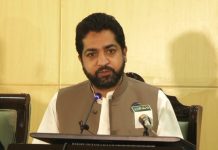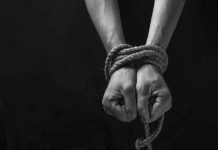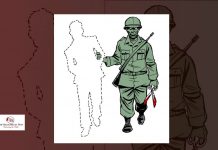Human rights Council of Balochistan has released its yearly report over the incidents of human rights violations in Balochistan.
Human Rights Council of Balochistan (Hakkpaan) is a non-profit and non-partisan human rights group based in Balochistan, France, Sweden and the UK. It collects reports from Balochistan, a region Pakistan government does not allow any media and HR groups to visit and report about.
According to the HRCB’s latest report; In the first month of 2021, security forces forcibly disappeared 14 people, four of whom were later released but the other 10 remain missing. As many as 32 people were killed in different incidents in the month, including 11 coal miners of Hazara community. Moreover, 24 people were released from the custody of the military. Most of the released had been in the custody of forces for more than two years while two were released after seven and eight years of disappearance.
According to details, on January 03, 11 coal miners were brutally killed. Their throats of all the coal miners were slit, after they were blindfolded and their hands tied behind their back. The Islamic State later claimed responsibility for the attack. All of the coal miners were Hazaras, a community frequently targeted by Taliban and Islamic State militants and other religious extremist outfits in Pakistan.
The shia Hazara community has been under severe attacks from Islamist militants since the early 2000s in Balochistan. Hundreds have been killed so far with no arrest of the culprits. The wave began along with the enforced disappearances and extra-judicial killing of political activists, writers journalists and lawyers in the region.
Furthermore, on January 03, Pakistan army soldiers bulldozed the entire village of Mehi Mashkay in district Awaran. Mehi is the birth place of Dr. Allah Nizar, the Baloch nationalist leader and head of the Balochistan Liberation Front, a militant organization striving for the independence of Balochistan from Pakistan. A few years earlier, residents of Mehi migrated to other areas after security forces burnt down the entire village. As some residents returned and rebuilt their houses, the forces obliterated all the settlements once again.
On January 24, the dead body of prominent Baloch leader and human rights icon Karima Baloch was brought back from Toronto, Canada, to be buried in her native village of Tump in district Kech. But, security forces abducted her body from the airport and escorted the body to Balochistan against the will of her family. Mobile services were suspended in the district, a strict lockdown was imposed in Tump and the surrounding areas and all the roads leading to the town were blocked. Even close family members were not allowed to attend the funeral. She was buried in her native village in the presence of a large number of soldiers.
People offered funeral prayers in absentia all over Balochistan and beyond. Huge protest rallies were organized across Pakistan against the inhuman act of the military not allowing a peaceful funeral.
Meanwhile, 24 missing persons were released from the custody of the military. Among them, Babu Hassan Jan of Kharan and Rab Nawaz Langove of Mangochar were released after seven and eight years of disappearance respectively, while Nasir Hussain of Jhao, district Awaran, Amin Shikari of Pasni, Imam Ishaq of Mazanband Dasht, district Kech and Shams-Ud-Din of Muslimabad, Quetta had been disappeared by forces in 2018. Moreover, Sudeer Khair Mohammad, Nadil Khair Mohamamd, and Zubair Ahmed of Jhao, district Awaran, Obaid Arif of Jatt Dasht, district Kech, Imran Sudeer of Shapuk, district Kech, Izzat Khursheed, Mehran Rasool Bakhsh of Kohad, district Kech, and Sharif Suleiman and Ghulab Ali Bakhsh of Daki Bazar, Turbat, had been detained during military raids in the early months of the year 2019 and had been in incommunicado detention since then.
Given the serious nature of enforced disappearances in Balochistan, the government should form an impartial team to investigate military officials for the disappearance of the aforementioned people, depriving them of all the basic human rights for years. Those responsible should be punished according to the law.
This report is taken from the HRCB’s official website and has not been edited by the TBP staff.






























